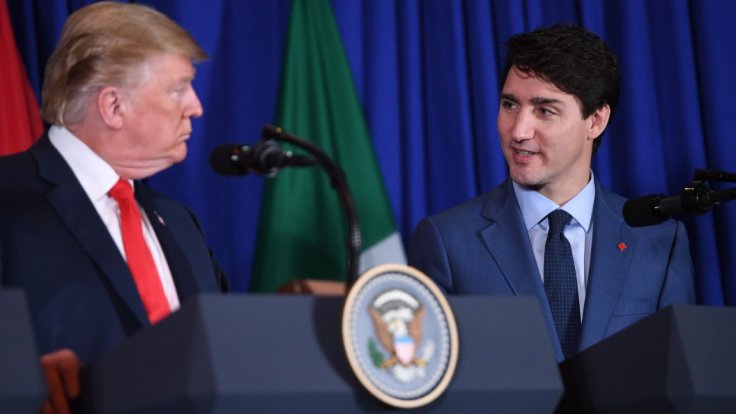Canada on Thursday slammed a U.S. proposal to deploy troops along their undefended border to help fight the spread of the coronavirus, saying the idea was unnecessary and would damage relations.
The uncompromising comments were a surprise, since Ottawa has enjoyed smooth relations with U.S. President Donald Trump's administration over the past 18 months. Last week, the two nations agreed to close the border to non-essential travel to ease the outbreak's strain on health systems.
The Wall Street Journal reported on Thursday evening that Washington had dropped consideration of the plan, citing an unnamed U.S. official. Reuters could not immediately confirm the report.

Troops to boost security
Canadian Deputy Prime Minister Chrystia Freeland had made clear the Liberal government had no time for a plan to send hundreds of troops to the border to boost security.
"Canada is strongly opposed to this U.S. proposal and we have made that opposition very, very clear ... this is an entirely unnecessary step which we would view as damaging to our relationship," Freeland told a news conference.
"The public health situation does not require such action," she said, noting Washington had yet to take a final decision.
Speaking at the White House, Trump appeared to lack details on the possible troop deployment and said he would look into the matter.
He said it would be "equal justice" since the U.S. military had deployed to play a support role on the border with Mexico.
A U.S. official familiar with the matter said that U.S. Customs and Border Protection was stressed on the northern border because virtually all patrol officers and border crossing officials were shifted to the southern border, where they are supplemented by a brigade from the 101st Airborne Division, a Marine battalion and National Guard personnel.
Canada-US border
The Canada-U.S. border stretches 8,891 km (5,525 miles) and is a crossing point for one of the world's largest bilateral trading relationships.
Canadian Prime Minister Justin Trudeau said earlier that Ottawa was in touch with U.S. authorities and would adjust border security measures if needed.
The United States now has the most coronavirus cases in the world, with over 82,000 infections and more than 1,200 deaths.
Canada, with a population about 1/9 that of its southern neighbor, has reported 4,043 coronavirus cases and 39 deaths.
The state of New York, which shares a border with Canada, has been an epicenter of the U.S. outbreak.
Tim Currier, the mayor of Massena, New York, a town of 13,000 people 9 miles (15 km) from the border, said a deployment could spark panic if it were not communicated properly.
"I'm concerned about how citizens look at that," he said.
Canada is no longer accepting migrants who walk over the border at unofficial crossings, instead sending them back to the United States. Washington plans to return them to their countries of origin.
Theresa Cardinal Brown, director of immigration policy with the Washington-based Bipartisan Policy Center, said the undefended U.S.-Canada border had long been a point of pride.
"I have not seen any reporting whatsoever of an increased threat posture at the U.S.-Canada border," she said. "Did we not have other stuff that troops could and should be doing?"








